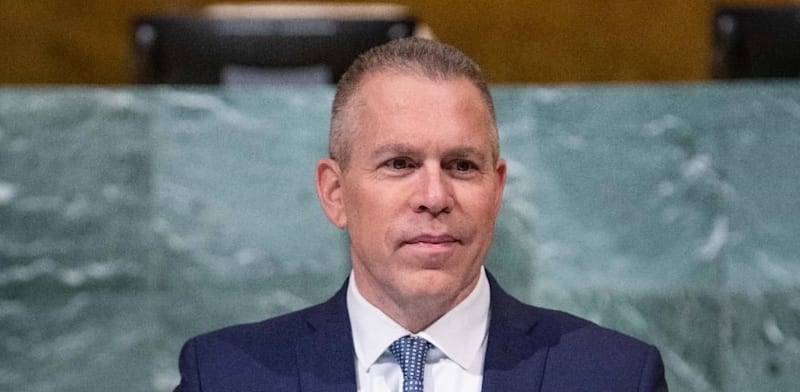ARTICLE AD BOX
Israel's markets have been over-performing in the past few weeks as investors see a ceasefire agreement with Lebanon moving nearer and the 2025 budget moving forward.
Israel's risk premium, as reflected in several indices, has been sharply moderating in recent days. This can be seen in the foreign exchange market as well as the bond market. This is a positive trend signaling a major change in direction. Just three weeks ago when Israel attacked Iran, the markets feared an escalation in the war and consequently there was major volatility in the forex market and a rise in government bond margins in relation to US government bonds.
"We see a fall in Israel's risk premium in several channels and in an impressive way," says Bank Hapoalim chief financial markets strategist Modi Shafrir. "This result comes about because lately we have been hearing about an expected settlement on the northern front. If at least in this region we reach a calm, this will affect the markets."
On the bond market, margins with US bonds narrowed both for dollar bonds and shekel bonds, reflecting a decrease in the risk premium demanded by investors. If that were not enough, since the beginning of this month, the shekel has been best-performing currency in the world against the US dollar and euro. Since the election of Donald Trump as US president, the dollar has strengthened against the basket of currencies, but not against the shekel.
Another indication of the decrease in risk is the price of the CDS - the cost of insurance against default of government bonds. The 10-year CDS climbed after the attack in Iran to a record level of 190 basis points. For comparison, on the eve of the war it was only 80. As of today, it stands at 160 points - high, but much less than at the end of October.
Despite the sharp fall, as seen in the CDS, the situation is still far from what it was on the eve of the war. Israel's bond spreads vis-à-vis those of US bonds have fallen, but they are still at a level similar to a BBB rating (like Mexico and Peru, for example), while Israel is not yet at this level at most credit rating agencies. The shekel also still embodies a certain risk premium due to the war, and according to market estimates, in a "normal" situation it would currently be trading at NIS 3.3-3.5/$ and not NIS 3.75/$.
Another indicator is the Tel Aviv Stock Exchange (TASE), which has recently performed well in relation to other world markets. Over the last month the Tel Aviv 125 index rose by about 5%, compared with Wall Street's S&P 500, which rose by only 0.5%. The prominent European indices in general fell during this period. So in the stocks sector as well, there has been a correction in Israel's underperformance throughout the last year of the war, although even after the recent gains the TASE has still underperformed according to estimates.
RELATED ARTICLES
The reasons for optimism
There are two main reasons for the optimism on the markets are two main reasons - the 2025 budget is moving forward and the reports of progress in negotiations for a ceasefire agreement in Lebanon. Shafrir says, "The market is looking ahead, and if Israel reaches a settlement in the north, the fighting will be less intense in the future and the market hopes for a recovery."
Meitav chief economist Alex Zabezhinsky says the markets believe the war is in its final stages, "and therefore the optimism is getting stronger."
However, when looking at Israel's macro data, it is hard to see relief. Inflation is still high, 3.5% in the October index - above the target of the Bank of Israel, and other data also indicate the weakening of the domestic economy. So why is the market conveying optimism? "This is the opinion of the market and this is how it perceives the current reality, as far as it is concerned, the risks to the economy have decreased," adds Zabezhinsky.
Signs of weakness
The inflation figure published at the end of last week did match analysts' expectations, but it is still higher than the upper limit of the Bank of Israel's 3% annual inflation target. According to estimates, the annual inflation rate will reach 4% in 2024.
Furthermore, the state of business survey by the Central Bureau of Statistics that was published recently, found that optimism for the coming year is falling. According to the respondents, there appears to be a decline in private consumption, probably due to the expected VAT hike and additional measures that will be imposed on the public. Consumer confidence, as reflected in this and other Cental Bureau of Statistics surveys in Israel, also remains low.
How can the gap between the pessimistic data and market optimism be reconciled? According to Shafrir, they are not necessarily related to each other. "The current situation does not indicate that the markets are looking to the future, they are looking forward to tomorrow."
Zabezhinsky has a similar outlook. He says, "Markets in Israel have not really been paying attention to the domestic economic data lately. Despite the publication of the Bank of Israel's composite index, which was quite negative and the other economic data which were weak, the market has continued on a positive trend."
On the positive side, the inflation forecasts for the coming year moderate slightly. According to most updated analyst estimates, inflation in the next 12 months will fall within the Bank of Israel's target range and will be 2.7%-3%. In this situation, it is likely that the possibility of an interest rate hike becomes unrealistic, although the current reality is especially volatile due to uncertainty and the war.
Published by Globes, Israel business news - en.globes.co.il - on November 18, 2024.
© Copyright of Globes Publisher Itonut (1983) Ltd., 2024.

 3 months ago
143
3 months ago
143







 English (US) ·
English (US) ·